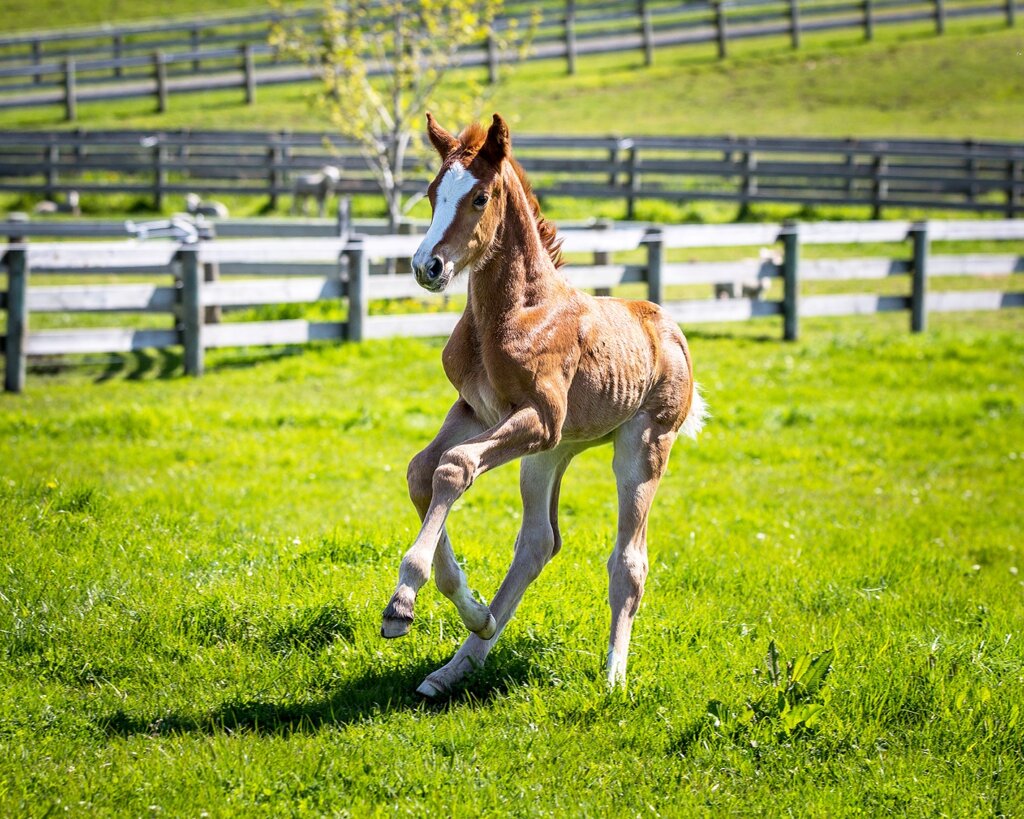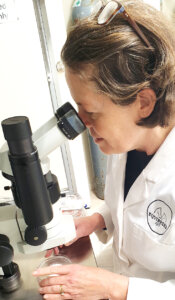
Equibreed made history in 2019 with the birth of New Zealand’s first foal – named Sienna – produced by an in vitro fertility treatment using intracytoplasmic sperm injection (ICSI).
Groundbreaking equine reproduction – or horse breeding – research at Equibreed NZ is helping keep work undertaken by Kiwi industry specialists “right up there” on the world stage.
And, director Dr Lee Morris says nearly four years since the family-owned Puahue company – halfway between Cambridge and Te Awamutu – pioneered a New Zealand first which “opened up a whole new world”, the team’s latest capabilities are helping Kiwi horse breeders overcome fertility problems in their mares and access better worldwide genetics.
Ultimately, she said, that’s yielding key benefits like lifting overall industry efficiency, increasing pregnancy rates and meaning breeders are not confined to the traditional window between October and March.
It’s possible via an in vitro fertility treatment using intracytoplasmic sperm injection, or ICSI. The process involves recovering unfertilised eggs from the mare’s ovaries while she is sedated.
The eggs are cultured in the laboratory until they’re ready for fertilisation, then a single sperm cell is injected into each egg.
The resulting embryos are cultured for up to 10 days in the laboratory before being transferred to a surrogate mare, or frozen for future use.
Equibreed made New Zealand history in 2019, when the country’s first foal – Sienna – was produced using ICSI because the imported donor mare, Wonette, was unable to carry a pregnancy due to damage from a previous foaling.
A specialist equine breeding facility with many of its clients being breeders of sport horses, or horses which show jump, event or compete in dressage, Equibreed has breeders from around New Zealand and the world on its books.
Morris has owned the company – which she runs alongside her husband Newlands – since 2008.
Work had been underway for several years prior to the “watershed moment” that was 2019, with Morris even involved in research in England with leading Kiwi professor and equine reproduction pioneer, the late Professor William ‘Twink’ Allen.
“Two key turning points were, firstly, the ability to freeze embryos and now this ICSI technology,” she said.
Almost four years on, Morris said a recent New Zealand study stated natural breeding first cycle pregnancy rates in thoroughbred mares was 53 percent.
In vitro fertility treatment using ICSI undertaken at Equibreed is now consistently achieving rates above 60 percent, Morris said.
“That’s as good as – if not at times – better than natural mating.”
With research backed by the New Zealand Equine Research Foundation (NZERF) and the New Zealand Equine Trust, Morris has just returned from presenting the findings of New Zealand equine reproduction work at last month’s 2023 International Symposium on Equine Reproduction (ISER) in Brazil.

Equibreed NZ director Dr Lee Morris in the company’s embryo lab.
Held every four years, the symposium is the world’s premiere gathering in the equine reproduction field – it attracts about 300 of the world’s top equine reproduction scientists.
“It was a real honour – and an incredible environment – in which to be given the chance to share the findings of the work we’re doing,” Morris told The News.
“Realising the work being done in the field here in New Zealand is actually right up there with the best in the world made me so proud.”
This year’s symposium was the 13th such gathering. Eight years ago, when it was last held in New Zealand in Hamilton, Morris chaired the organising committee which helped make it a reality down under.
Here in New Zealand too, Morris’ desire is to collaboratively share research findings for the betterment of the whole industry.
She regularly publishes research reports and findings and speaks at New Zealand Veterinary Association conferences.
“It’s not just about me, no man is an island, right?”
ICSI, Morris said, is the latest of several services Equibreed offers breeders under an “evolving” arm of the company called Equibreed Advanced Reproductive Technologies, or ART.
Growing up in Australia, she always wanted to be a vet.
Among a storied resume, Morris graduated from The University of Sydney in 1992 with a Bachelor of Veterinary Science. She then undertook a three-year residency programme in Theriogenology, Latin for reproduction of beasts, at the University of Guelph in Canada.
“Put simply, our key aspiration is to give breeders and their horses as many options as possible, while at the same time increasing efficiencies.
“I love advancing scientific discoveries and helping make them practical and useful.
“Newlands calls me lucky lucky Lee because – supported by my family – I’m literally living my dream,” she smiled.
“Being at the forefront of the equine reproduction industry, with my finger on the research pulse, really is one of the major joys of the work we do.”









